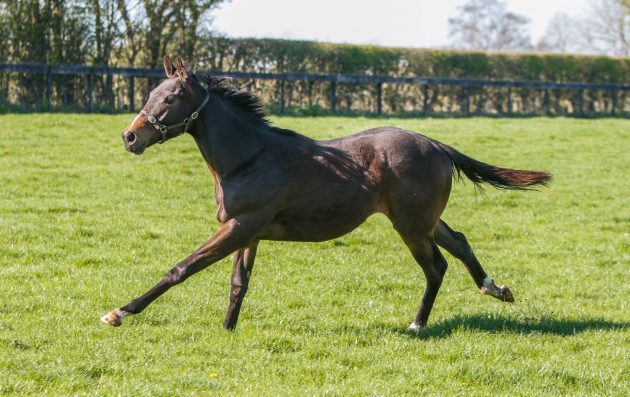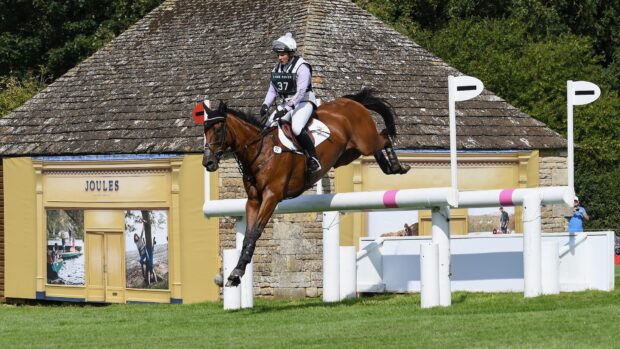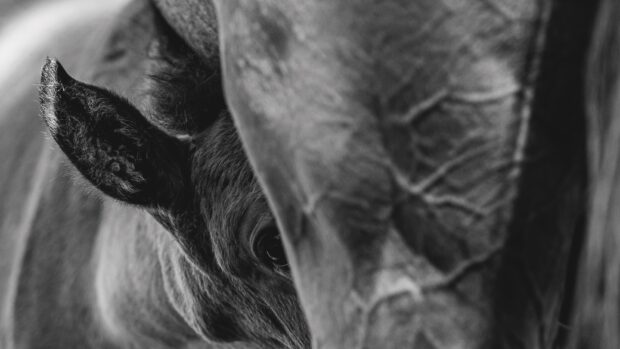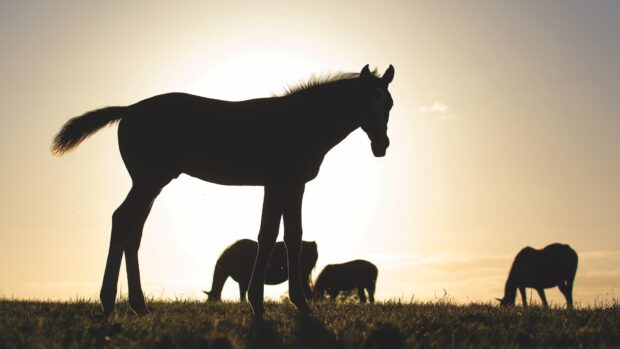Four years ago, Sophie Buckley bought her first three foals at the thoroughbred sales. Last week, she sold a Cable Bay colt — a €4,000 purchase — for an impressive 160,000gns at the Tattersalls October Yearling Sale (pictured below as a foal and at the sales).
However, it is Sophie’s unusual approach to preparing yearlings for the sales, which makes her stand out within the bloodstock world.
In a competitive industry, which is focused primarily on making a profit at the sales, Sophie uses her background in dressage and showing to concentrate on the finer details when prepping yearlings.
“I prepare my yearlings differently to others in the industry,” said Sophie. “It’s not just about making a profit, it’s about also giving the yearlings the confidence to go onto their racing careers, and give them the ability to cope with life.”

Sophie’s Cable Bay colt as a foal (left) and ready for the yearling sales (right). Credit: Sophie Buckley
After purchasing foals at the sales in November, they are turned out in the field and “well fed”. Sophie then begins their sale ring preparations around July, before they head back to the sales from August through to October — a busy time for all involved.
“Each day, I make sure the yearlings are doing something different at home,” she explained. “They will either go on the walker, be hand-walked, lunged or I ride-and-lead them off my hunter up the gallops.
“I don’t like the idea of them just going round in circles. It’s good to teach them to go up the gallops in a straight line and be next to another horse in an open space,” she added.
“I use my background in showing and dressage to produce the yearlings correctly. For example, I lunge them like dressage horses with a Chambon and incorporate transitions, so they have to use their natural balance. I believe it’s all about the marginal gains, although some yearlings are harder to work with than others.”
Continued below…

Eventer buys TB colt for £50k — sells him for £450k
The Irish rider made a hefty profit after the sale of a thoroughbred colt she had owned for less than

Subscribe to Horse & Hound magazine today – and enjoy unlimited website access all year round
Before breaking into the world of pinhooking, Sophie — who grew up in Ireland — enjoyed success in the show ring when under the tutelage of show producer Frances Cash, and also trained with international dressage instructor Gisele Holstein.
She also credits support from working hunter specialist Rory Gilsenan, who has been shortlisted for Absorbine Inspiration of the Year awards at the 2019 H&H Awards.
Sophie and her husband, Charles, with their two children, are based at Culworth Grounds near Banbury, where they have been creating a purpose-built equestrian facility.
“It’s hard to break into the bloodstock industry, and it took me many years,” said Sophie. “That first year I purchased three foals, the next I had six and then the following I bought 12 — each year went well and it just grew from there.
“When buying foals at the sales pedigree is important, but there is certainly an art to buying foals. You have to have an eye for their athleticism — they must have a good walk and good conformation. It’s all about finding a diamond in the rough.”
For all the latest news analysis, competition reports, interviews, features and much more, don’t miss Horse & Hound magazine, on sale every Thursday.




